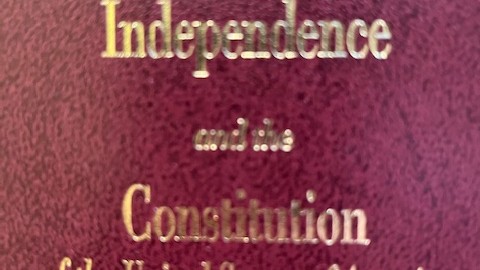The Constitution Trumps Autocracy
George Washington served as the first president of the United States from 1789 to 1797. As commander of the Continental Army, Washington led his forces to defeat the British Empire in the American Revolutionary War. He is known as the Father of his Country for his role in bringing American independence.
Washington emphasized that the Constitution of the United States is paramount to the Republic of the United States. The Constitution establishes the principle of the separation of powers among the three branches of government: legislative, executive, and judicial.
- Article I defines the legislative branch (Congress).
- Article II defines the executive branch (President).
- Article III defines the judicial branch (Supreme Court and lower courts).
This division ensures that no single branch holds too much power, thereby preventing tyranny and promoting a system of checks and balances.
The Constitution, which prohibits absolute power, monarchy, and despotism, is the foundation for republicanism. It accentuates the idea of self-governance, civic virtue, and political participation that provides the rule of a representative minority. The constitution emphasizes virtue and faithfulness in civic duty and condemns corruption. These standards are based on Ancient Greco-Roman virtues, Renaissance values, and English models and ideas.
Washington, a keen judge of talent and character, followed the Constitution, warned against political factionalism, and urged citizens to be vigilant about individuals seeking control over the government. He cautioned the American people to remain suspicious of anyone who seeks to abandon the Constitution and to be aware of groups attempting to weaken the government in situations where individuals cannot defend themselves. Washington counseled friendship and commerce with all nations. He emphasized the importance of religion, asserting that “religion and morality are indispensable supports” in a republic, and reminded us that the triumph and possession of independence and liberty result from working together.
Washington foresaw the threat to American democracy from someone like Trump: In his farewell address, he worried that “sooner or later the chief of some prevailing faction” would manipulate the public’s emotions and their partisan loyalties “to the purposes of his own elevation.”
